The Army’s Been Good to Me
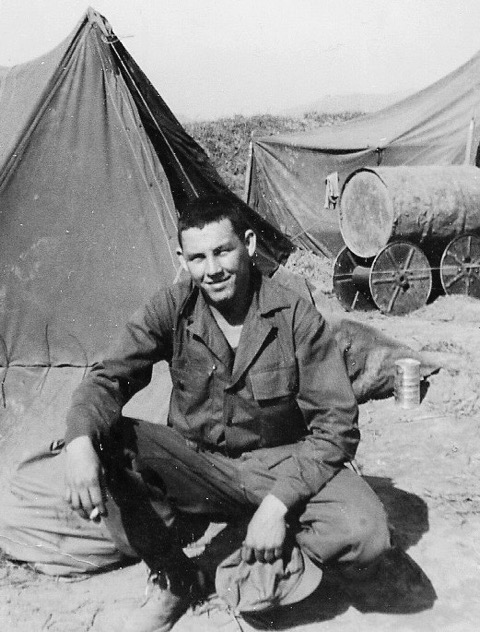
In 1948, Travis Brann, an immature and disillusioned high school kid, dropped out of school. He wanted to make money, he told his parents, not sit in a classroom. A year later, tired of working part-time jobs and going nowhere, he decided to join the military.
A month before his seventeenth birthday, Travis forged his birth certificate, persuaded his mother to sign a parental permission slip, and enlisted in the US Army. He somehow made it past the recruiters, who were probably more than happy to look the other way and add another enlistee to their ranks.
On April 16, 1949, a day he’ll never forget, Travis reported to Camp Chaffee, Arkansas, to begin his 14-week basic training course. His 25-year Army career, spanning two wars and taking him from the rank of Private to Lieutenant Colonel, had begun.
The Great Depression and World War II
Born in the small town of Clarendon, Arkansas, on May 14, 1932, Travis Brann was one of five children raised in a Depression-era family that struggled to get by. Times were hard and when his parents separated, they were even harder. “My sisters and I lived with my mother in Dallas,” he recalled. “As a single parent, she did her best to take care of us. She made only $8 a week.”
During World War II, Travis watched as the older boys, including his brother, went off to fight in Europe and the Pacific. By the time the War ended in 1945, he was thirteen and tired of school. I wanted “stuff,” he said. In 1948 he quit school, got a job, and suddenly realized that working was a lot harder than it looked.
A year later he was at Camp Chafee. “I’m sure my parents thought I would mature in the military,” he recalled, "and return home a better person.”

A 9th Infantry Regiment personnel “office” in Korea, circa 1951. (Photo credit: Travis Brann)
Off To Korea
After completing his basic training and “lots of floor mopping, rifle cleaning, and potato peeling,” he reported to Ft. Lewis, Washington, and joined the 9th Infantry Regiment. When the Korean War broke out on June 25, 1950, his unit was one of the first to be sent to Korea. "The 9th Regiment suffered heavy casualties defending the Pusan Perimeter,” he recalled. Many of his friends were wounded or killed during the intense fighting with the North Korean army. But Brann wasn’t there. He was still in Washington.
Months earlier, while skiing on Mt. Rainier with his buddies, he'd crashed and broken his leg. The injury, which "in retrospect probably saved my life," was so bad that he spent the next seven months at Madigan Army Hospital on Ft. Lewis, the same hospital that many of his friends were now returning to as Korean War casualties. He had missed some of the worst fighting of the war.
After getting a clean bill of health, Brann was sent to Korea in early November 1950 and assigned to the 24th Infantry Division. Working as a messenger “running all over the division sector in a jeep in the middle of the night,” he was always nervous, he told me, especially with his unit moving deeper into North Korea. By late November, his hopes of being home by Christmas were dashed. The Chinese had entered the war and the US Army and Marine Corps were being pushed south.
Withdrawing through Pyongyang during the first days of December, Brann saw US engineers burning equipment and supplies to prevent them from being used by the approaching Communists. Reports and rumors about “the disasters befalling the Marines and 7th Infantry Division on the eastern flank and the 2d Infantry Division to our east” circulated among the men. A massive retreat across Korea was unfolding; the fate of millions was at stake.
A year later, after much fighting, heavy casualties, and the liberation of Seoul by UN forces, Brann was sent home. With his enlistment almost over, it was time head back to the States. In four years, he had grown from an inexperienced 16-year-old Private to a mature, 20-year-old Sergeant and combat veteran.

In Korea with his 3.5 Inch Rocket Launcher. (Photo credit: Travis Brann)
An Impressive Career
After a brief stint in the civilian world, which didn’t suit the young Brann, he re-enlisted in September 1952 and quickly found himself back in Korea with his old unit, 9th Infantry Regiment, this time as a communication chief with Heavy Mortar Company. “We moved from place to place on the front lines supporting British, American, and Korean units,” he said. When the Korean War truce was signed in July 1953, Brann was in an area called the “Iron Triangle” and was more than ready to come home.
He returned to America on January 2, 1954, and was promoted to Sergeant First Class. Brann later passed his high school equivalency test, graduated from Officer Candidate School, and was commissioned a 2nd Lieutenant in the US Army. During his 17 years as an officer, he became an expert in guided missiles; worked with NATO, the German Air Force, and the British and French armies; served in Vietnam as a Senior Advisor to a Vietnamese artillery battalion; and finished his career at NORAD, the North American Aerospace Defense Command, as a Lieutenant Colonel. "Not bad for a high school dropout,” he told me recently. “The Army’s been good to me.”
As we celebrate Armed Forces Day this weekend, it’s fitting that we remember people like Travis Brann, Americans who served their country during war and peacetime – and made the world a better place. They worked hard to improve themselves and their families and took pride in wearing the uniform. Today, I salute Mr. Brann and all the men and women of our US Armed Forces. Thank you for your service!

Travis' last frontline position in the “Iron Triangle,” July 1953. (Photo credit: Travis Brann)
Postscript
On March 3, 1954, two months after he returned from Korea, Travis married his girlfriend, Margaret. It was a match destined to last. The couple celebrated their 64th wedding anniversary in 2018. They have 3 children, 7 grandchildren, and 10 great-grandchildren.
Travis has returned to Korea on two occasions to commemorate June 25, the start of the Korean War, and has also traveled to Vietnam to revisit the sites where he served from 1968-69.
Top/Featured picture: Travis Brann in Korea, summer of 1951. (Photo credit: Travis Brann)
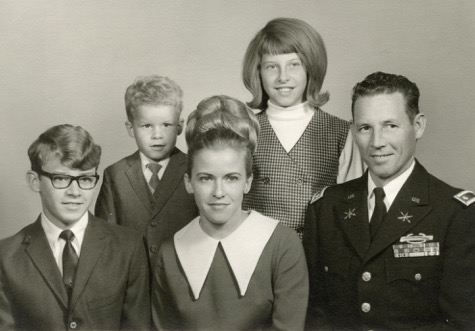
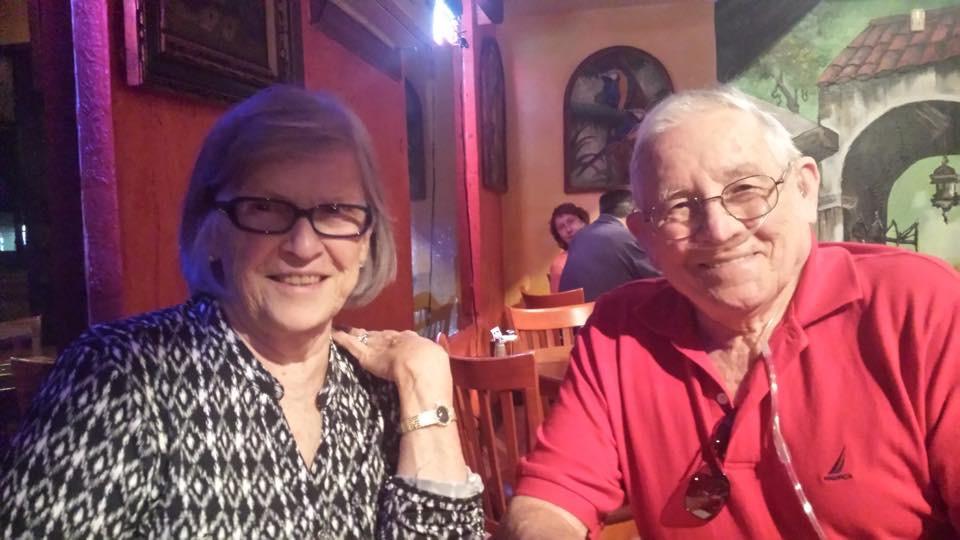
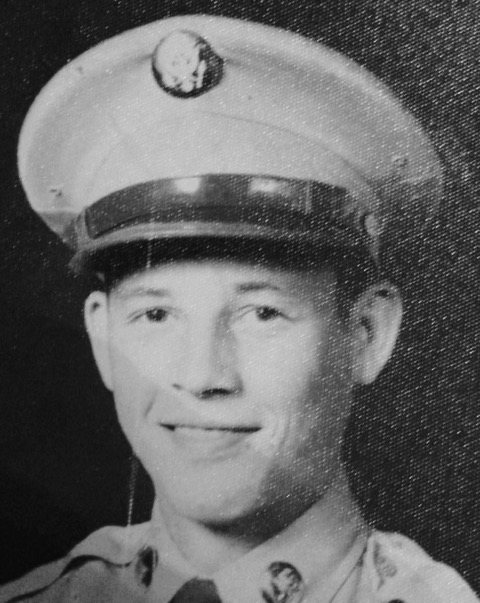
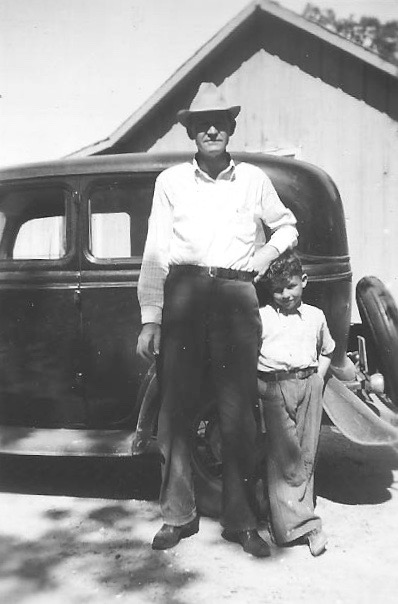
I happened on this story, and it is a well written interesting story. There is something about being in the Army that makes most soldiers finally be a pert of something they longed for but din’t know it. Discipline, exercise, meeting buddies you would never get to know otherwise, being part of a team, and firing weapons at the range you never would get to do in civilian life. Then being a real soldier who will go overseas to a place that is way different, and go there to help those people keep Communism from shackling them, and take freedom away.
Thanks for reading the blog and sharing these comments, Doug.
We all know it’s tough when we’re in, and there are a lot of hard knocks. But when we look back on our careers, we realize how rewarding it really was in many ways.
Always appreciate your feedback.
LTC Brann, as a captain, was my battery Commander in Germany in 1965-66. I was a shave tail 2LT. CPT Brann was the greatest influence for the good that I had during my military career. Life lessons taught me by Travis have carried over into my civilian life. Today Travis is still my mentor and great friend.
What a great privilege to have a CO who you respected, taught you life-long lessons, and is still your friend today. Thanks for sharing your heartfelt remarks.